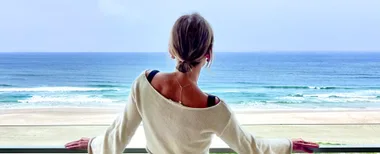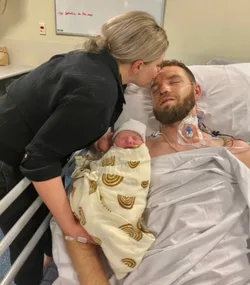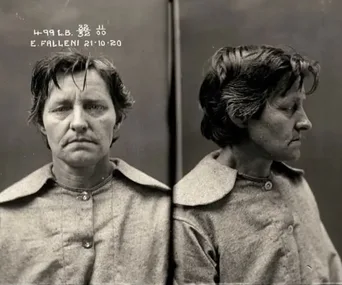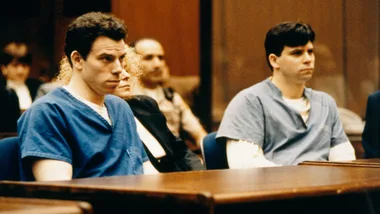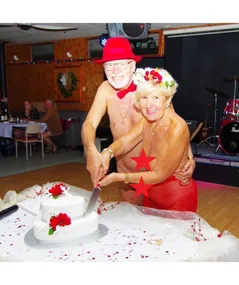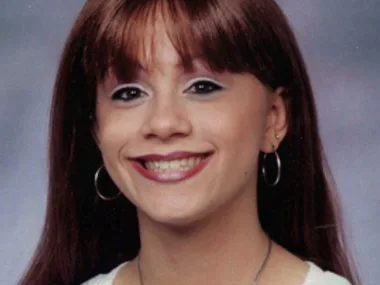The comic star reveals her alarming health prediction.
“I’ve resigned myself to dying young.” Dawn French makes the startling admission that she doesn’t expect to live very much longer — even though she isn’t ill. So what lies behind her disturbing conviction?
Point Neptune House is a glorious 40-room mansion on a cliff top near the charming English fishing village of Fowey, Cornwall, with magnificent views of the ocean and the colourful boats in the harbour.
And it is here that Dawn French says she intends to go to die.
It is an extraordinary and startling revelation but one that is made quite casually by the comedian — who has been making us laugh for well over 20 years — in the course of a routine interview about the retrospective that she and comedy partner Jennifer Saunders are putting together, A Bucket O’ French & Saunders.
It is even more odd given that Dawn is perfectly fit and in the prime of her life. Not that she intends to trot off to that great Comic Strip in the sky in the immediate future.
However, she is moving to Cornwall next month because, for some time, she has felt an urgent need to be settled in her dream home before her 50th birthday in October. In a statement that will shock and dismay millions of fans, she says, “I thought I’d like to spend the rest of my life there. I want to see beauty every day. I’ve never thought I’d live to be very old. I’ve always felt that. So by 50 I want to be down there.”
It amounts to an admission that this is where she will see the end of her days. She concedes that this is, indeed, the way she is thinking, adding cheerfully that her intention is “to die slowly and nicely, in great surroundings, with my family”.
“It is a bit shocking, isn’t it?” she adds. “I’m not ill. I’m very fit, in fact. There is no history of early death in my family. I have a granny who is 99, I lost my other one at 95 and my mum is a pretty good 74. I don’t feel gloomy about it.”
Dawn says she has no idea where the feeling came from that she would not live to be old but she has always had it. She told older brother Gary about it when she was six and told husband Lenny Henry, soon after they met, that, “I don’t think I’ll be around for a long time.”
Apart from worrying about the effect losing her would have on their adopted daughter Billie, 15, she feels perfectly calm in the face of this unsettling premonition.
“It doesn’t feel scary, it feels like a surety. I’m not scared of death. I want to be around for my kid to get plugged into adult life. That is the only thing I would want to live any time for.
“I doubt you go anywhere when you die, you just go to sleep. Billie is the only one I think it would be difficult for. What’s weird is I’m quite a logical person and there’s not much logic to this. There are certain things I just know.”
It is a crazy way to think for someone in early middle age, yet there seem to be a number of endings occurring in Dawn’s life. Last Christmas she said goodbye to the character of Rev Geraldine Granger when the hit TV series The Vicar of Dibley finished, she is doing the retrospective with Jennifer Saunders, after which they look set to go their separate ways, and she is writing her memoirs.
Dawn is writing the book — for which she has been paid a $5 million advance by publishers Century, the highest figure ever paid to a British comedian — as a series of letters, almost as if they were her goodbyes to the people who have meant most to her in life. Several will be addressed to her father, Denys, and it is his fate that might hold the key to why she feels her mortality hurrying closer.
Endlessly chirpy and friendly and seemingly open on the surface, Dawn in reality guards her privacy fiercely, rarely divulging anything personal, and she never spoke about the fact that her father committed suicide when she was 19 until it was revealed in an unofficial biography in 2000.
She adored her father and credited him with teaching her how to be happy in her ample frame. The story is well known of how he sat her down as she was about to set off for her first teenage disco, nervous about whether any boy would ask her to dance, and told her that she was “uncommonly beautiful”, that she should be proud of herself physically and that she would be, “desirable to all the boys I would meet that night”. His words, “affected my whole life”.
Her father was unassuming and gently funny and had had a successful career in the RAF, but when he left the service he found it impossible to settle in to civilian life. He ran a news agency, then started a business breeding rabbits with his brother-in-law, but he was not a good businessman and had constant money worries. He could find no sense of purpose and suffered increasingly long and serious bouts of depression.
According to the biography, his illness caused severe disruption to family life. Dawn and her brother were sent to boarding school — which she hated — while her father was in the RAF, and carried on boarding even after he left the service. In addition, for several years when she was in her early teens, she and Gary were sent to stay with family friends during the school holidays. Neighbours were quoted as saying that at one point Denys French left the family home to live and work 30 miles away, but Dawn fiercely contests the implication that the couple separated, saying the biography, “lied about my mum and dad’s marriage, saying they split up when they never did. My mum still cries about it.”
As Dawn neared the end of her teens she was beside herself with worry over her father, but no one could get through to him. On September 11, 1977, he drove five miles to where he had his rabbit-breeding business, parked beside the hutches, drank sherry from a bottle he had taken from the house, connected a hose pipe to the exhaust, fed the other end into the car, started the engine and waited to die. He was 45.
At the inquest it was revealed that he had tried to kill himself twice before, once by a similar method and once with a gun.
Among the dozens of tributes in the local evening paper over the following days was one from Dawn and Gary saying, “Goodbye to a perfect dad. We’ll miss you more as each sun sets.”
Such a shattering event must have profoundly impressed upon her the fragility of life and happiness. Lenny Henry’s periodic struggles with depression may also have reinforced the feeling that nothing is certain.
Lenny came close to a breakdown during the notorious episode in 1999 when he spent a night in a hotel with a young blonde Australian and was alleged to have pestered lap dancers at a club in Tenerife.
The previous year his mother had died and he had turned 40 and, according to Dawn, he was in the grip of a mid-life crisis. “He went a bit mad. Absolutely mad. It was like all the bonkers behaviour people can have in a lifetime, he put it into two years and went off the rails. I was sort of worried he hadn’t gone off the rails before — that he’d always been so calm.”
He booked himself into rehab clinic The Priory to deal with his depression, and then the couple took six months off work to be with Dawn, spending much of it travelling in New Zealand, and rebuilding their relationship.
“It was such a little thing,” she said recently of his bad behaviour.
“He doubted himself a lot and misbehaved and everything came suddenly at once. What he needed to do was have a good cry and go away fishing for a few days, but he couldn’t because he had work commitments. He was very over-stressed.
“We’re all going to get married and a bit unmarried sometimes, and then married again.
“Everyone’s going to have a bit of a rough ride and just because you’re in the public eye doesn’t mean that it’s any different.”
Dawn’s wise, warm and philosophical attitude towards Lenny’s misdemeanours also seems to extend to the troubles she has faced in her own life — troubles that she has emphasised do not account for her size, as she asserts that she is not a depressive eater.
“We’ve all been dealt some terrible cards, but generally I’ve had a happy life. You don’t get to my age without some self-doubt and some demons. But they’re just demons,” she says.
Her adoring fans will have to hope that her feeling that she won’t be around for much longer is just a demon, rattling her cage. And that she will still be here and making us laugh when she’s 90.
More celebrity interviews in this week’s Woman’s Day
Newsletter conversion description. Get the latest in your inbox.

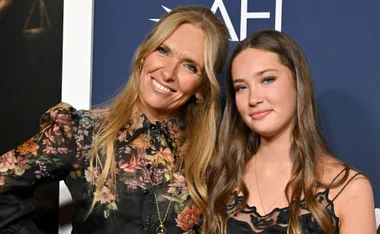

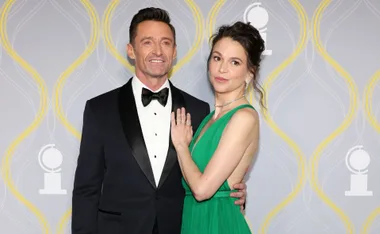


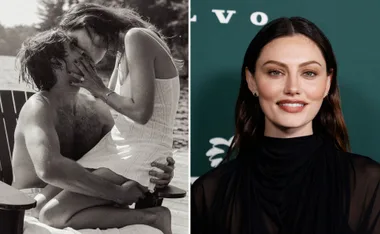

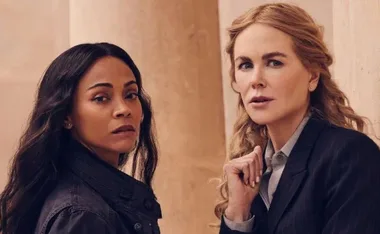
.jpg?resize=380%2C285)













